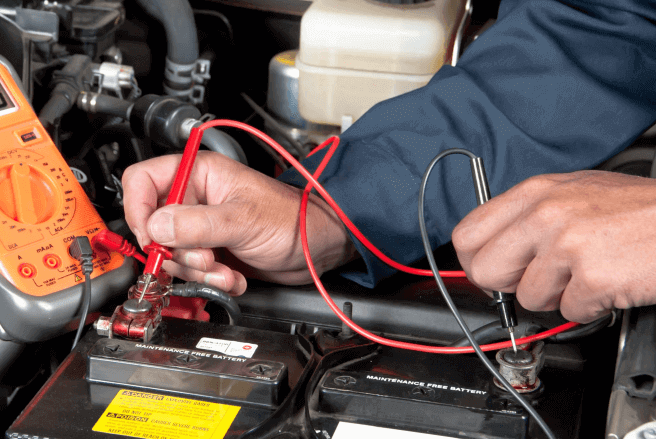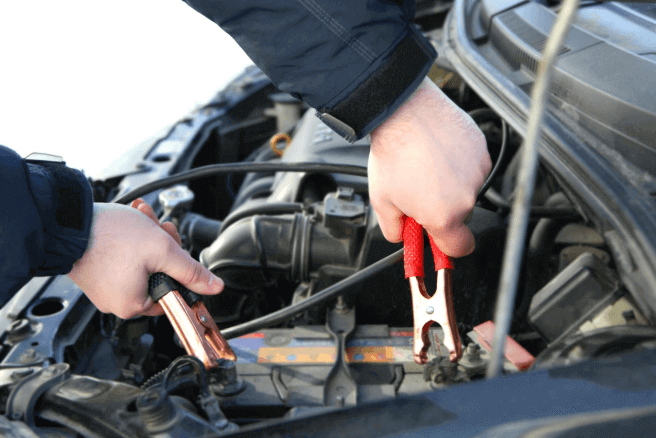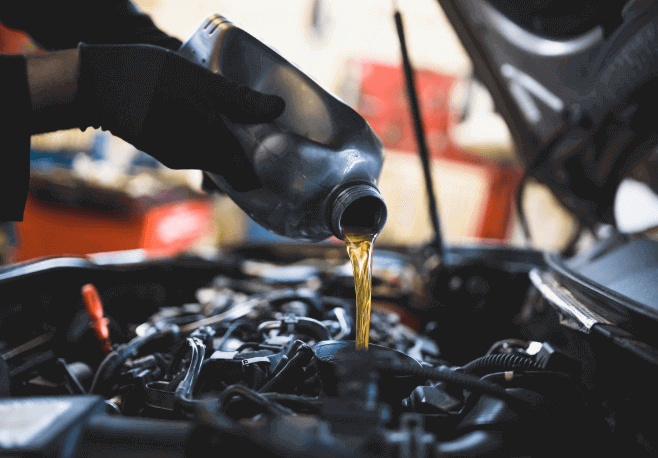Do you want to prepare your car for long term storage during the 2020 coronavirus outbreak? Are you in search of the most helpful long term car storage tips and checklist? If your answer is “Yes” then you have landed at the most appropriate long term car storage guide today.
Given the fact that an unprecedented effect of the novel Coronavirus is expanding every day and a terrifying pandemic is prevailing all across the world, undeniably you would be pardoned if the maintenance of your car isn’t at the top of your mind these days.
Nevertheless, since most of the major countries like the USA, UK, Canada, Australia, and the likes are in complete lockdown and most people are encouraged to work from home- keeping your car in good nick has become more significant than it might seem.

Now, one of the remarkable ways to curb the spread of the virus is, undoubtedly, to practice social distancing and stay at home. Unless you are driving for one of the crucial purposes defined by the government of your country- with the inclusion of some relief work, necessary shopping or medical reasons- you should refrain from driving your Aston Martin, Jaguar, Land Rover or Bentley at all costs for the time being.
For most of us, that means our cars will sit parked for a long time span. However, we should remember, the more our car sits, the more lies the risk of long-lasting damage or an unwelcome costly repairing bill. Cars are meant to be driven. Sitting parked isn’t really healthy for them. But, if you really want to take care of your costly and beloved car and maintain its well-being, there are certain golden measures you can take to ensure that it remains at its top condition when you start it for a road trip the next time.
Contemplating “What are those measures that can help me keep my car well-maintained so that it runs smoothly and does not cause any accident when I gear it up next?” Well, there’s good news for you. You do not need to search far and wide. For we have done a bit of extensive legwork and brought forth a comprehensive guide that will not only help you keep your car in shape in this Coronavirus era but will also come handy in the long run.
In this well-detailed guide, we hope to answer all your queries like – How long can a car sit without being driven? What happens when a car sits too long? or How to keep the gas fresh in your car?” Also, do not forget to cast a glance at the top-notch long-term car storage tips provided at the end that will surely put you miles ahead.
Thus, without any further delay, let’s straight away get into the deets and learn all the essential tips for long term car storage during coronavirus outbreak. Shall we?
How Long Can a Car Sit Without Being Driven?
With the whole world battling against the life-threatening situation of COVID-19, it is quite obvious that you would not be able to get around and put your car to use as much as you were used to. So, it’s natural for many of us to ponder over the question “How long can a car sit without being started?” Or “What happens when a car sits for too long?”
No need to fret. As we have tried our very best to provide all the answers to your common queries. Have a look at the sections enlisted below:
How Long Can a Car Sit Without Being Driven?
Well, the answer to the question how long can a car sit without being driven? honestly depends on the condition of the 12-volt battery of your car. Most modern cars that come adorned with a fairly healthy battery must fairly last at least for about 14 days or 2 weeks, without the necessity to be started up for battering recharging.
Again it depends also on the surrounding environment of the car. If your expensive Jaguar sits in the driveway amidst sub-zero temperatures or blizzards, even it can be quite reluctant to start. Apart from that, countless things that can happen to your car’s chemistry and structure if you leave it sitting for too long.
Certain aspects like the gaskets and seals started becoming brittle, the battery started draining, tires become flat and brittle, fuel begins gumming up, rust appeared and engine oil started deteriorating. Undeniably, there are ample things that could happen, but these are the ones to be mainly concerned about.
If you start having doubts about the condition of your car and battery, give it a start once a week to be safe.
How Long Can You Leave a Car Without Starting It?
Are you wondering how long can a car sit without being started? Given the risk factors, one should not allow any more than 2 weeks or 14 days to pass without driving the car, if your expectation is to be at the top of the car game. Ideally, try to start your car once and drive it even for a few minutes in your neighborhood once every two weeks.

If your plan is to let your car sit for a long span, take certain essential measures to protect it. Try to put a car cover to regulate its temperature. Fill up the tires and the gas tank. Ensure to unhook the negative battery cable to refrain the battery from dying.
Just like your body demands a good workout when you wake up from sleep, your car needs a workout too. Remember to wake up the engine and the transmission slowly and gradually to circulate the oil and lubricate the moving parts of your car. Drive your Aston Martin down the road, and make sure to provide a remarkable heavy tap on the gas tank.
What Happens When a Car Sits Too Long?
If you are the one scouring the internet for the answers to these questions “What happens when you don’t drive your car for a long time? or What happens when a car sits too long? ” then let us tell you, cars are manufactured for driving, not to keep it sitting. When a car is kept sitting for more than a couple of weeks regardless of any crucial reasons, it starts to break down systematically.
The primary issue starts with the battery of the car. Car batteries operate with the help of electrochemical reactions, and these reactions do not stop significantly when the engine is turned off. Hence, even when your car is not being used, the battery will relentlessly drain. Then this would lead you with certain significant issues with alarms and remote central locking.
Secondly, if your car sits in the same spot, stagnant and stationary for a long time span, the tires start developing flat spots where they are kissing the tarmac. Apart from that, the gas tank which is resting in a near-empty condition would eventually and gradually begin collecting moisture. This moisture gets collected into the oil that finally in the course of time leads to a corroded gas tank and car parts.
Now with all the nooks and crannies, a left alone car becomes the perfect shelter for rodents and other pests who tend to exhaust the outlets and chew their way through the important wirings of the car. Hence, if you plan to leave your costly Ford or Chevrolet abandoned for a long period in your driveway, it is essential to keep these vital points at the back of your mind and take necessary measures for its well-being.
What Happens When a Car Sits for 2 Years?
Whenever any such circumstances appear where you have to store your car for the long term then you might feel very concerned and obviously you would wish to know what happens when a car sits for 6 months or a year or 2 years? It’s also one of the most common long term car storage queries on the Internet.

Well, after sitting for 2 years, the battery of the car can lose a lot of power so much that it will need a jump start or a recharge to start the engine. Tires would start losing their air under all environmental conditions especially when the weather becomes gravely cold.
As we mentioned above, the moisture starts getting collected in the gas tank and in the oil over days which leads to serious corrosion. So you can easily see what happens when a car sits for 2 years.
How Long Can a Car Sit Before Engine Goes Bad?
As per the condition and usage of the battery of the car, it might usually take a time span of a month to two months for the battery to wear out completely. This signifies, if you do not ignite the car for two months it may lead the battery of your car to turn cold. For that, you would be required to undertake certain essential measures to get it running it again.

Like, you should know that the battery gradually starts losing its potency due to remaining in a cold area over a long period of time. In such a circumstance, what you can do is just remove the battery and keep it in a safe and dry place. As even the tiniest droplets of moisture can soak the power out. This is mainly because the battery tends to lose its charge in 8 weeks when it is inside the car. But, when it is removed, it receives about an additional 4 weeks to stay charged enough to start the car.
Again, a battery that is removed from the main electricity line needs to be charged every 12 weeks. So, if you plan to amp up your game and restore the healthiness of your car battery, ensure to charge it every 12 weeks.
How Long Can a Car Battery Sit Unused?
With the COVID-19 gripping the entire world in some forms of lockdown, it has become an absolute essential for us to remain in the confines of our houses or maintain self-isolation, and frankly, it is for our own good. However, this hibernation period has brought nightmares and taken a toll on all four-wheeler owners as they are constantly plagued with worries of maintaining the batteries of their cars for such a long period.
And believe us when we tell you, you are getting cold feet at the very thought of your beloved automobile dying and for all the right reasons. It is of utmost crucial to be mindful of the time you leave your car parked in the driveway. Even BMW claims that the maximum time span you can let your car sit without the battery being worn out is four weeks. Furthermore, BatteryModeOn.com claims that the simplest answer to this question is “a tad bit under two months”.

We know you are scouring the internet for the past few hours to get relevant information on long term car storage tips to follow during the coronavirus outbreak. So here we have arrived to help you out in your overwhelming journey by answering some of your most common queries like “how long can a car sit before the engine goes bad?”. Keep reading to gain relevant insights which we’ve provided here depending on your most searched answers.
How Long Can a Car Sit Before the Battery Dies?
Depending on how old your beloved car’s battery is, on average it takes about 2 and a half months for the whole battery to drain out. Now, if you have a BMW, it will drain out in a month.
So, does it mean that you have to give a start to your car once every 2 month and 14 days?
Not at all! You just need to learn some necessary measures to take care of your car’s battery unless you want to purchase a new one when this pandemic comes to an end.
Can a Car Battery Go Dead from Sitting?
Yes, of course. It takes at least a month to completely wear out unless it’s a higher-end car equipped with ample computers and power-hungry gadgets. Now, how do you comprehend that your car battery has died from sitting? You have to look just observe the following factors listed below:
- While turning the key, the engine will not crank up in any way. It will just make a clicking noise. You may leave your car for a bit, and try again. If it does not and all you hear is the clicking noise, your battery is nearly or dead.
- Nearly all modern cars have countless electronic accessories like power windows, radio, dashboard lights, windshields, etc. Each of these things needs the power to operate smoothly. And, if it starts acting up, you need to get your battery checked.
- Next, if you remember that the headlights are not as bright as they were before, then your car battery is deteriorating.
- Last but not the least, a slow engine crank is the most common sign of a battery that is breathing its last. If you hear the motor cranking, perhaps your car is giving the signal to change the battery.
How Long Will a Car Battery Last If Disconnected?
If this question is doing rounds on your mind, here is the answer- As we have mentioned before, when a battery remains inside the car, it tends to lose its charge on an average in 2 months or 8 weeks. But, if you disconnect or remove it, the battery gets extra 4 weeks to remain charged adequately to start the car.
How to Keep Car Battery Charged When Not in Use
While a time span of 4 weeks to 3 months may be adequate to keep your battery working, it’s still wise to remain err on the side of caution. Now, as due to the coronavirus you are required to let your car sit parked in the garage for quite some time, it is better to do it by removing the battery.
Not only that, try to store it in a place where you can take control of the environment and keep it out of the reach from pets and children.
Now, you also need to protect it from moisture. One of the foolproof hacks to do this is to place a piece of plastic (or a mat that is moisture-resistant) below the battery. Then, give it a proper cleaning with the use of baking soda to refrain from leakage and corrosion.

Always remember that storing the battery safely is only half the battle won; you also need to keep it juiced up completely. Following the rule of thumb, ensure to recharge the battery after every twelve weeks. Or else, the chances are you would find yourself with a dead battery which you are left with no other option than to dispose of.
How Long Does a Car Battery Last Without Driving?
If you have a new BMW or Audi and we assume that the car battery is fully charged, then it might last at least 2 weeks or 14 days without charging from the generator. It will only drain out completely within a time-span of two to three months.
But let us tell you, if you are planning to abandon the car without taking any proper measures for this time span, your beloved friend is not going to be by your side when you return back to it. Then, the car would not even start let alone taking it for a neighborhood drive.
How Long Can a Car Battery Hold a Charge When Not in Use?
It is crucial to understand that to preserve the battery charge properly, it is essential to be careful of the temperature at which the battery would be stored. If you are wondering “how to prepare a car for long term storage during the coronavirus outbreak” this is one of the crucial aspects to keep in mind.
If it is preserved in subzero temperatures, the battery can discharge much more rapidly than that of the room temperature. Now if you store the battery at the optimum temperature, the time during which it will remain in a remarkable operating condition depends on its overall capacity.
Remember the natural leakage of a car battery is about 10 mAh. Considering this figure, you can easily estimate the time period for which the battery of your car can hold the charge when not in use.
How to Disconnect a Car Battery for Long Term Storage
As per the eminent researchers and skilled experts, disconnecting a car battery is one of the brilliant ways you can store it in the long run. The process is completely cost-free, however, you need a special essential skill to make it happen. All you have to do is just have profound knowledge of the crucial steps to remove the battery from the car and keep it in someplace safe.
Wondering how to disconnect the car battery smoothly and without much hassle? All you need to do is determine the negative terminal of the car battery that is covered in a black cover and also negative signs close to it.

Next, you need to take a pair of wrench or pliers or wrench and undo the securing rut. You need to pull the negative cable out, secure to one side of the engine with a cable time. Once the positive cable is undone, simply secure it with a cable tie to ensure they never touch each other.
Lastly, use the pliers to undo all the connections to remove the bracket. Once you unsecure the battery, it can be removed smoothly without any hassle. Remember to wear proper insulated gloves and keep your safety glasses on to enable the lifting of the battery with a firm grip.
Not as difficult and challenging as it seemed to you, huh? Then, what are you waiting for? Try it at the earliest.
Do you know? How Long Can a Car Go without an Oil Change?
How Long Can Gas Sit in Car Tank Before It Goes Bad?
Now that you know more or less “how long can a car sit without being driven?” or “what happens when a car sits for 2 years?” , it is wise to wonder about the shelf life of the gasoline in your fuel tank. Due to the outbreak of this pandemic all around the world, there are fewer cars on the road right now, as the majority of people are isolating in their homes to curb the spread of this pernicious and virulent disease.
As per a survey of Inrix.com, it was found that by the week ending March 27, 2020, overall road travel in the U.S. was diminished by 38 percent in comparison with the typical nationwide travel for this time of the year.
Now, in such a terrible circumstance where you are driving less only due to necessities or not at all, the Gasoline sitting in the fuel tank of your car could be degrading, becoming old and stale.

In the opinion of Consumer Reports chief of the automotive services manager at the Auto Test Center “Gasoline can begin to go bad in as little as just three months, as the lighter and more volatile components of the gasoline can evaporate over time.“
Hence, it is quite natural for you to be worried and anxious about storing your gasoline in the car tank. If you are one of those who are on the lookout for important long term car storage tips to follow during coronavirus outbreak, then all you need to do is go through some of the common but essential questions listed below. It will not only provide you with the immediate breather from all the worries but will also enable you to save a fortune. Have a look:
How Long Can Gas Sit in Car Tank Before It Goes Bad?
Like wine in a bottle without the cork, the gasoline in your car can go stale and bad when it sits around in the fuel tank left to mingle in the air. Gasoline naturally degrades and tends to lose its combustibility over a time span due to its exposure to the oxygen and evaporation of the volatile compounds present in it.
Despite this, it usually lasts three to six months only when it is stored properly in a metal tank or an airtight sealed plastic container. However, it is noteworthy to remember that the usage of the fuel stabilizers or the purity of the gasoline can lengthen or shorten its life.
How Long Can You Store Gasoline with Stabilizer?
Fuel stabilizers are nothing but petroleum-based additives that one can mix with the gasoline to slow down the evaporation of the volatile compound of the gasoline or the oxidation and extend the shelf life of the gas sitting in your car tank.
Now, one should also remember that everything depends on the quality of the product. If the product is of amazing and brilliant quality, the stabilizer can enhance and increase the gasoline shelf line between one to three years. It also works effectively when you tend to mix them with new gasoline.
On the other hand, they are fruitless at slowing the aging process of old gases, and they prove to be unsuccessful to return contaminated gasoline to proper working order.
How Long Does It Take for Gas to Go Bad in a Car?
To put it simply, the time span in which the gas can turn stale in your car completely depends on numerous factors. The shelf life of the gasoline in your car completely is entirely based on the type of gas that is used in your car and in which conditions you store it in. The time for gas to go bad in a car ranges for a couple of months. Whereas, properly stored gasoline usually lasts from three to six months. Ethanol-blended gas can last up to three months.
Not to forget, the gasoline incorporates a mixture of better or more oxidation inhibitors in comparison to the others, which make its condition deteriorate in the flash of an eye. This is the main reason why wise car owners favor checking the gasoline of their vehicle to prevent the situation.
What Happens When Gas Sits Too Long in a Car?
Keeping the gas sitting for a long period of time in your car can be a grave cause of concern. The first and foremost issue that occurs with the old gasoline in your fuel tank is that it loses its volatile compounds. These significant compounds are those of the first ones to evaporate, however, they are the strongest ones when ignited in the engine of your car.
Secondly, air time along with the metals in your car’s fuel system possesses the potential to cause oxidation. This refers that the hydrocarbons present in the gasoline would alter due to their alteration with the molecules of oxygen of the air. The particular change will lead to gumming or varnishing which requires a specific cleaning compound to remove it.
Lastly, your fuel tank can tend to leak if the car is not driven for months together. This is primarily due to the addition of water resources. The addition of water can cause incomplete combustion of gasoline and lead to countless major problems. Due to the presence of water in the fuel, the gasoline would not ignite. This may lead to foul spark plugs, irregular ignition, rusting of metals, clog lines and the likes.
Thus, to prevent the gasoline from becoming a serious cause of concern when your car is left unused, it is crucial to be wise and take certain necessary measures.
Can Gasoline Go Bad in the Tank?
If you are one of those who have leftover gasoline sitting merely in the fuel tank of your car as you are practicing self-isolation, it is incredibly natural for you to ponder over the fact “does gasoline degrade in the tank?”
Now, there’s no general answer to this frequently asked question. While gasoline can be preserved for months to years, there are several environmental factors like heat, oxygen, and humidity that affect the condition of the fuel.
You can think that if crude oil can last for a hundred to million years underground, why does gasoline have the risk of becoming stale? To say in simple words, experts say that by the time gasoline reaches the consumers, it develops into a completely distinct substance than that of the original crude oil.

The final gasoline after refining and adding numerous substances to balance it consists of distinct compounds that are too many to even determine and characterize it. But, this care in balancing leads it to become stale if it is kept to mingle with the air for too long.
In the words of Richard Stanley, the former chemical engineer for Fluor Corporation “If the gasoline is left by itself for quite a few hours, it just doesn’t perform the same way you expect it to be.”
How Can You Tell If Gasoline Has Gone Bad?
“Bad gasoline” or “stale gas” is gasoline that has degraded over time and lost an important part of its combustibility.
If you are skeptical of whether the gasoline in your car has become stale or not, we have come with five signs that you can watch out to determine the case. These signs would surely demonstrate clearly whether your fuel has become contaminated or aged for just a few years. Have a look at the five signs enlisted below:
- Issues in Acceleration: If you step on the gas pedal of your car and it does not accelerate right away, then you are facing certain hesitation in the engine. This hesitation could be mainly due to the result of stale gasoline in the internal combustion chamber. Either your vehicle would respond and accelerate, or it won’t completely start.
- Unusual Speed Changes: Stale gasoline can also cause changes to the speed in which you’re driving your automobile. If you see that you have barely set your foot on the gas pedal, but seeing that the driving speed is drastically altering, then this is a powerful indication of bad gasoline in the gas cylinder and tank.
- Issues in Starting the Engine: If you face serious troubles in simply starting the engine of your car, then higher chances are there is stale gasoline in your fuel tank.
- Engine Stopped Running: If you are driving your car along the road, you have barely driven for a few miles and notice the engine to stop running, then you have bad fuel.
- Damaged Fuel Filter: If you observe your car to have damaged fuel filters that ensure debris and dirt do not make their way into the tank and mix with the fuel, then this is one of the clear indicators that the gasoline in your car tank has gone bad.
Nevertheless, whatever the circumstances are, if the gasoline has gone bad, you are required to drain it from the fuel tank and replace it with fresh and uncontaminated fuel.
How to Keep the Gas Fresh in Your Car
During these uncertain times in the era of coronavirus, if your plan is to leave your car parked in the driveway but maintain the freshness of the gas, it is essential that you follow certain necessary steps. Try to add fuel stabilizer in the tank to refrain it from going bad. This would make it much easier to gear up your car smoothly when you are finally ready to take it out of your driveway.
As we mentioned above, fuel stabilizers for cars keep the fuel from going stale over time. Hence, when fuel stabilizer is added to the tank, the fuel tends to maintain its full strength and doesn’t gum up the neighboring parts. This is primarily the main reason as it prevents the oxidation process, refraining the chemicals in the gas from getting ruined over time.
All the more, this essential step also prevents you from the tiresome process of cleaning up the carburetor and refilling the tank once you decide to take it out of the driveway and go for a road trip with your BFFs.
How Long Can Gasoline Be Stored in a Car?
Truly, it depends on the type of gas. If you have gas which is ethanol blended in your fuel tank, then it has a shelf life of up to three months due to the rapid speed at which ethanol oxidizes. If you have genuine gasoline without the blend of ethanol and it is properly stored, then perhaps you can preserve it for up to 6 months.
However, if you are planning to let your car sit in the driveway for long, there are fuel stabilizers like STA-BIL that can extend the shelf life of the gasoline from one to three years.
Must read: How to Prepare Your Car for Long Term Storage in 2020
How to Prepare a Car for Long Term Storage During Coronavirus Outbreak
The advancing and pernicious Coronavirus pandemic all across the world only means that most of us, the owners of our costly four-wheelers aren’t covering numerous miles and frankly, that’s going to be the situation for a while!
For others, it refers not driving their cars at all. You are sitting in the comfort of your home and your car is also kept sitting in the garage. But, let us tell you when you are planning to invest in small to large DIY projects or cooking new cuisines, your car is passing out into hibernation.
If you belong to the latter camp, you would want to have a deep understanding of How long can a car sit without being driven? or How long can a car sit without being started?. If you just let your Aston Martin or BMW sit for an extended period, higher chances are that you would return to a dead battery, or worse completely ruined engine, damaged tires, and perhaps a rat’s nest under the hood.
So to help out in your overwhelming and arduous journey of preparing for a long term car storage during this pandemic, we have enlisted some foolproof hacks that would ensure that your beloved four-wheeler BFF remains undamaged and still running fine when you return.
Have a look at this comprehensive long-term car storage guide that will not only successfully give solutions to all your crucial queries like What happens when a car sits too long? but will surely put you miles ahead.
1. Find the Right Storage Location
This is one of the most crucial steps that you should follow to keep your car in a top-notch condition. An ideal car location should be completely clear of moisture and ventilated properly. Make sure that it is completely sealed from rodents. Pests can cause havoc damage to the electrical wiring of the car and seats.
Clean your car at regular intervals and ensure that there are no food particles anywhere left in the car. Apart from that, you can also give the exterior a good wax polish. Vacuuming the interior would make sure that there is no built up of mold when you leave your car parked for a long time.
2. Check Your Paperwork
Wondering “How to prepare a car for long term storage?” Then, this is one of the foolproof hacks you should keep in your mind.
If you feel that you are not going to use the car for a long time period like six months to a year, it is always vital to make sure that all the paperwork is completed as well. It is also significant to let your insurance agent know that you won’t be using the car. This small step can not only protect you when something happens to your car but save fortunes.
If you decide not to renew the insurance of your car, it is prudent that you set reminders. It would save you from driving your uninsured automobile when you return to it.
3. Fill the Gas Tank
Wondering “how long can a car sit before the engine goes bad?” Then you should definitely stay abreast with this hack. If you expect your car to be parked in the driveway for more than 30 days, it is wise always to fill the tank with remarkable quality gasoline. Topping it off would not only prevent the moisture from accumulating inside the tank but it also keeps the seals from drying out.
Ensure to purchase brilliant quality fuel stabilizers like Sta-bil to avoid the buildup of ethanol and give necessary protection to the engine from gumming, varnishing and rusting. The fuel stabilizer would prevent the gasoline in your fuel tank from going stale for up to an average of 12 months.
4. Change the Oil
After long-term storage dirty engine oil can thicken considerably making it challenging for you to start the car when you retrieve it. Hence, according to experts, changing the oil is one of the most essential tips for long term car storage during the coronavirus outbreak.
They are of the opinion that an engine oil incorporates contaminants that can damage the car severely if you leave it sitting for too long. Though they recommend changing the oil after every 5,000 to 7,500 km, it is also crucial to get an extra oil change before putting your car away.
5. Disconnect the Battery
As per eminent researchers who answer your crucial queries like “how long can you leave a car without starting it?” or “what happens when a car sits for too long?”, disconnecting the battery is significant. It is pivotal to disconnect the battery before letting your car sit in the driveway for an extended time period.
Preserving your car for the long term with the battery live will cause it to die in a week. Apart from that, the batteries can leak corrosive acid and lead to the damage of the car if it is stored for too long. It is a simple process and would go a long way to save you a heck of trouble later on.
6. Don’t Leave the Handbrakes On
Now, this may sound incredibly counter-intuitive to you, but leaving your car hand brakes on for a long time span can cause the brakes to fuse, especially in that of cold or wet weather. Instead of that, you can use a piece of wood, or a wheel chock to refrain the car from rolling away while it is parked.
If your plan is to store the car for more than three months, then it is always sensible to use blocks or stands and raise the car off the ground. This would help greatly in reducing the weight of the tires of the car.
7. Put the Car on Jack Stands
Do you know how to prepare a car for long term storage during the coronavirus outbreak? Believe it or not, following a simple step like putting the car on jack stands will go a long way in extending the shelf life of your car.
Unused tires form uneven wear. This is mainly as the weight of the car is completely concentrated on an area of the tire. These stands take off the entire pressure of the tires of the car. Make sure that the tires are inflated properly while leaving. Experts also advise deflating the tires less than the recommended pressure i.e. 10 psi. This will avoid the cracking of the tires.
8. Keep Rodents Out
While preparing your car for long-term storage, you would want to make sure that you do not take any rodents along for a ride next time your drive. This signifies keeping the mice, and other vermin out of your four-wheelers.
These creatures apparently chew cars, nests in cars, and otherwise wreak havoc on the interior of your car. So it is always suggested to block each entry point. Verify all vents are closed. Set traps around the car area so that critters fail to set up their shops inside the mufflers.
9. Make Sure Your Car Is Clean Inside and Out
The consequence of the query “ what happens when a car sits too long?” also depends on how clean you keep your car while storing it. It is essential to always clean and vacuum the inside as well as wash and wash the exteriors of the car.
A clean exterior always removes those unwanted elements that can easily gobble up the finishing of the car and refrain corrosion.
10. Lubricate the Car
To refrain from the situation of freezing shut from developing on the doors, it is crucial to lubricate the hood, doors, and truck making the use of white lithium grease or silicone for the graphite on locks and tires.
This is to ensure that when you return, you would not face any trouble in opening the doors or the trunk of your car.
11. Use a Car Cover to Keep It Covered
A car cover can protect your car from the surrounding moisture and thereby rust. This keeps your car clean and protected from the elements of weather. Apart from that, it offers complete protection to your car exterior.
12. Drive the Car Periodically (If Possible)
Lastly, one of the most important long-term car storage tips to follow during the coronavirus outbreak is to take the car for a drive periodically (if possible). Batteries of cars tend to lose to charge if not used for an extended time period.
So, if you can take the car for a test drive once in a while, it ensures that the moving parts get properly lubricated. Turn the air conditioner to make sure that it is working properly. Reset the car clock and other essential stuff that is used by the battery.
Author’s View on Long Term Car Storage Tips
If your car could speak or explain to you its thoughts, then its first query would have been “What’s going on right now? What happened to those good times when you used to travel in them daily?”
The novel coronavirus has miserable affected millions of people across the countries or for that matter the whole world. It is the modern Thanos and even with our ancient wits and wisdom, we are not able to stop it from spreading. While taking rest and maintaining self-isolation in these crucial times is a brilliant idea, taking care of your expensive four-wheeler besties are also significant.
If you are one of those who are looking for the answers to questions like How long can a car sit without being started? or How long can a car sit before the engine goes bad? then it is crucial that you immediately go through this well-detailed guide especially curated for you. While you take special measures to protect the battery and gasoline in your car, there are certain steps that you should conduct to keep your car in prime shape during the lockdown. Find a safe spot to park your car, remove the battery, keep changing the oil, lubricate it, do not use the parking brakes and the likes.
To ease your journey, go through these foolproof hacks. Have them up your sleeves if your aim is to be at the top of your game while storing the car for the lockdown period. Implement them to keep your car in a top-notch condition, irrespective of the time span it stays locked away.
If you found this comprehensive guide “All you need to know about long-term car storage during Coronavirus outbreak” useful for you in order to prepare your car for long term storage then please feel free to share this guide with your friends on social media networks.
For the most up-to-date news and information about the Coronavirus pandemic, visit the WHO website. Stay safe, Stay Sound. Here’s wishing you and your car good health!
